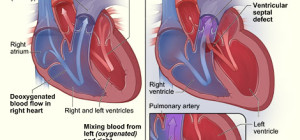Gum disease, also known as periodontitis, can cause the loss of teeth if not treated. It starts with inflammation of the gums due to bacterial growth and gradually destroys the tissue that keeps the teeth in place.
What is Periodontitis?
Inflammation of the gums is called gingivitis, and it is one of the first symptoms of gum disease. Having inflammation does not necessarily mean that gum disease is inevitable, since there are many causes of gingivitis. Bad bacteria around and between the teeth can build up and cause plaque, which then inflames the gums and makes them tender. Brushing and flossing can cause bleeding and discomfort at this stage, but there is no real damage yet.
Untreated, gingivitis may worsen until the layer of the gums around the teeth pulls away and pockets are formed. Food particles get trapped in the pockets and infections begin, spreading and growing under the gums.
In the final stages of gum disease, the toxins created by the plaque bacteria and the infections attack the foundations of the teeth, destroying the bones and tissue that keep them in place. Teeth become loose at this point and begin to fall out.
Causes of Periodontitis
Although plaque is the main cause of gum disease, it is not always the only factor. Sometimes illnesses, hormonal changes, and medications can cause other oral issues such as gum sensitivity or dry mouth can heighten the risk of gum disease. A lowered immune system might keep the body from effectively warding off the bad bacteria and could cause a faster rate of plaque build-up. Some families have a genetic predisposition for gum disease, as well. Smoking inhibits gum tissue repair, and can lead to disease, as well as plaque build-up due to poor oral hygiene.
Symptoms of Periodontitis
Because gum disease does not always display obvious symptoms, it is important to schedule regular visits with your dentist every six months. In between visits, be aware of these warning signs:
- Inflammation of the gums
- Bleeding gums
- Incessant bad breath
- Space between gums and teeth
- Loose teeth
If you have a family history of gum disease or are developing oral health problems, your dentist may want to schedule more frequent visits to keep symptoms in check and prevent further damage.
[youtube http://www.youtube.com/watch?v=kXI4AFEeHA8]
Treatment of Periodontitis
Most gum disease is reversible. Gums can become healthy again and reattach to teeth. The treatment a dentist chooses depends on how far the disease has progressed and the health of the patient. Most gum disease therapy does not involve surgery, although it may be necessary in extreme cases.
Good oral hygiene that involves twice-a-day brushing, flossing, and using a mouth wash that fights the bad bacteria is one of the best ways to fight gum disease. In addition, going to the dentist for cleanings twice a year to have all the plaque and tartar removed helps to keep gum disease in check.
For gum disease that has progressed more deeply under the gum line, a procedure called scaling and root planing can remove the plaque and tartar from below the gums and any rough spots on roots are smoothed so that new plaque does not build up as easily. This procedure is done with local anesthetic.
When the tissue around the teeth has become too unhealthy to reattach itself, surgery may be needed. One surgical treatment of periodontitis is called flap surgery, and involves the gums being lifted away so that the roots can be cleaned and tissue realigned more snugly. Bone and soft tissue grafts strengthen the teeth and eliminate extra spaces that have been created by bad bacteria.
An Ounce of Prevention
When good oral hygiene and regular dental visits are not enough, other risk factors may need to be addressed.
- Tobacco Use - Smoking and other forms of tobacco use are major factors in the development of gum disease, and can keep treatments from being successful, as well.
- Stress - Immune system function is lowered during stressful periods, preventing the body's ability to fight off the bad bacteria that causes plaque build-up.
- Poor Diet - Proper nutrition is critical for oral health. Vitamins C and E are particularly important when the body is working to repair tissue that has been damaged.
- Teeth Grinding - People who clench or grind their teeth can weaken the tissues that support the teeth and cause them to be more susceptible to gum disease.
It is particularly important for people who have high risk of gum disease to protect teeth and gums from bad bacteria with good oral hygiene, regular dental visits, and behaviors that support oral health.








